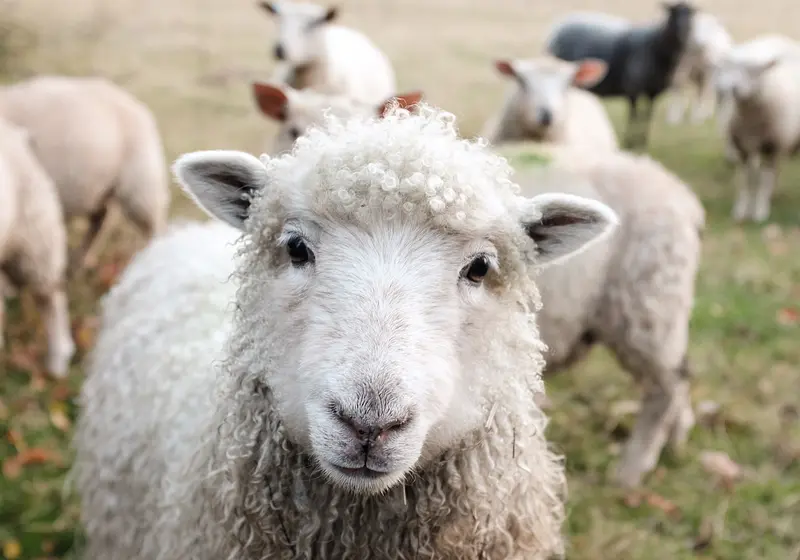Animalkind, the new prominent book in the field of animal rights, is a fascinating and awe-inspiring work everyone with an interest in animal welfare should read. The authors, Ingrid Newkirk and Gene Stone, paint brilliant pictures of animals as thoughtful, sentient beings, challenging the notion that only humans can think deeply and feel emotions. This book will transform the way you see other creatures, and provides a devastating glimpse into the suffering and abuse they endure.
Let us slide into your dms 🥰
Get notified of top trending articles like this one every week! (we won't spam you)Summary
Animalkind is divided into two sections, the first of which provides revolutionary new insight into the worlds of seemingly ordinary creatures. Mice, for example, have the ability to feel empathy for others, becoming visibly distressed when they witness the suffering of other mice. Cows love their offspring, and are willing to go to enormous lengths to keep them safe: one dairy cow was even found hiding her calf in the nearby woods to keep him from the slaughterhouse.
Dolphins can actually recognize the whistles of others they hadn’t seen in twenty years, demonstrating an incredible capacity of memory. Even fish have hidden brilliance. Research shows that fish can actually recognize themselves in a mirror, an extraordinary display of self-awareness that even dogs cannot match.
The section ends by disclosing that these fascinating animal abilities are only the ones we’ve discovered: animals have more incredible capabilities that we have yet to uncover, or that we will never be able to comprehend. As demonstrated, animals are so much more than objects to use and abuse for human pleasure.
The second section of Animalkind presented less cheerful imagery, detailing how animals suffer in the science, clothing, entertainment, and food industries. Newkirk and Stone demonstrate the brutal world of animal abuse, from monkeys who are locked away in labs and purposefully injected with deadly diseases; to sheep who are beaten and molested for their wool; to chickens crowded into tiny cages and brutally killed at just five weeks old.
Their suffering, vividly described, is rendered even more appalling by the previous section of the book, and its descriptions of animals’ cognitive and emotional abilities.
However, Newkirk and Stone offer hope towards the end of each section, describing the progress these industries have made and the advance of new animal-free methods and technologies. Computer simulations are beginning to replace animals in laboratories, cotton and linen clothes are proving excellent alternatives to wool and fur, virtual animal shows are growing in popularity, and a wide variety of tasty, healthy vegan alternatives are now available.
Given these cruelty-free alternatives, Newkirk and Stone argue, it is unacceptable to allow animals to be horrifically tortured and abused in these industries. They close by presenting ways for readers to advocate for animal rights in their homes and communities.

Take the Quiz: Which Generation Matches Your Personality?
Discover the generation you truly belong to!
My Review
Overall, Animalkind was enormously successful and inspiring. The well-defined structure of the book made it easy to follow and comprehend; in many informational books, there is little organization, and it can cause readers to feel that they are being bombarded with information. However, Newkirk and Stone did an excellent job separating Animalkind into distinct sections, so readers could easily grasp the concepts being presented.
The order of the different segments was another major factor in the profound influence of this book. By first establishing that animals are sentient beings, capable of thinking and feeling emotion, the authors render the second section, brutally describing animal suffering, far more heartbreaking and powerful.
The ending of the book, describing ways for readers to help end animal abuse, gave people clear, explicit ways to translate the influence of this book into action. Even simple acts — like sending an email, boycotting companies, and sharing messages on social media — can make a difference in the lives of suffering animals.
Throughout the book, Newkirk and Stone’s expertise and immense knowledge in the field of animal rights is clear. Their experience and proficiency is what created such a compelling read, and their fame is likely why the book is popular and in high demand. Gene Stone has written over fifty books, fifteen of which made the New York Times Bestseller’s List, and is best known for his inspiring works on plant-based diets and animal protection.
Ingrid Newkirk is the founder and president of PETA, one of the most famous animal rights organizations in the world, and is known for her outspoken beliefs that animals should not be used by humans in any way. She has gained notoriety for her extreme methods of protesting animal suffering, notably throwing blood on people wearing fur coats, and she does not hesitate to condemn those who are involved in animal abuse.
Given the authors’ extreme beliefs and personalities, I feared that Animalkind would come off as harsh and caustic — at the very least, emphatic and combative. But it didn’t — not even close. Instead, the authors used an informative style, presenting information on animals and the ways in which they suffer, and allowing readers to observe for themselves that animals are sentient beings that should not be abused.
There was little direct argumentation, which is one of the main reasons the book was so powerful. By letting readers interpret the information given, Newkirk and Stone gave the impression that they were not forcing their ideas upon others, simply trying to educate them about animals and animal suffering; on the other hand, swooping in and providing argument after argument to prove their point could feel forceful and dominating, repelling those indifferent and opposed to animal rights.
Demonstrating through examples rather than through passionate reasoning drew readers in to the message Newkirk and Stone wanted to share, and helped them fully accept the truth about animals and the ways in which they suffer.
The major argument that Animalkind refutes is that animals don’t feel pain and emotion like we do, and therefore it is morally acceptable to abuse them for human benefit. Newkirk and Stone display to their readers why this is false. They present example after heartwarming example of animals caring for one another, mourning over lost loved ones, walking through [censored] to protect their babies — feeling, caring, suffering, and loving one another.
Their stories bring to life the incredible mental capabilities, the deep emotional capacity, and the unique value of all creatures, from the tiniest pocket mouse to the largest blue whale. As they demonstrate, time and time again, animals do think and feel, maybe not in the exact same ways that we do, but in their own, unique, beautiful fashion. And it is wrong to allow these incredible, sentient beings to undergo suffering, just to appease our fiscal desires.
As Animalkind walks readers through the amazing abilities of our fellow creatures, their emotional awareness, ways of being and interacting with one another, it changes peoples’ views of the incredible beings with whom we share the planet. It gives people the power not only to recognize animal cruelty, but to stand up and fight it. For these reasons, I highly recommend this book to anyone with even a cursory interest in learning about animals and animal rights.


















